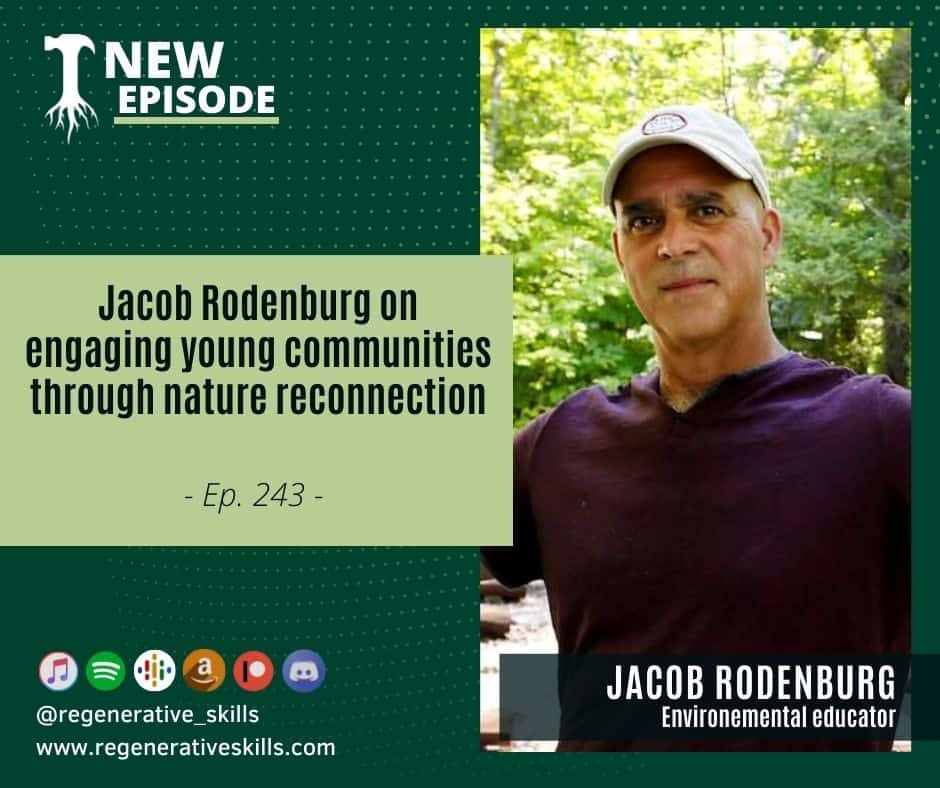
Learn more and register for the Profitable Syntropic Agroforestry course today!
As we continue in this ongoing series on building strong communities, I wanted to take a step back and focus on the youngest members whose needs and considerations are often overlooked as the adults take charge and make decisions.
Childhood education, especially nature reconnection and environmental knowledge has come to the forefront of my thinking this year when my sister and the three little girls came to visit from where they live in Kuwait for the whole month of January.
Going into this visit I was feeling really excited to spend time with them after a two year absence during the pandemic, and I started planning all kinds of activities for what we started calling Jungle School. Jungle School was thought up as the time I was going to set aside in the mornings to bring the girls outside to discover all the wonders of nature and the different forms of plant, animal and fungal life that we have in this environment. The setting was perfect. Thanks to a connection that my partner has, we were able to put them up in a Catalan Masia set in an organic hazelnut orchard where there’s outdoor play areas, fruit trees, chickens and rabbits, and even horse stables.
I figured I got this. I mean, I used to work at a camp counselor at summer camps and at a guest ranch, and one of my first jobs was a before and after school program at an elementary school. I love working with kids and I in the zoom calls before they came out, I got them all worked up about the coming adventures of jungle school.
You’re probably thinking by now, “Oliver, you’re hyping this up a lot but it sounds like you’re setting this all up for a big let down,” but that’s not the case. All in all, things went incredibly well. The girls loved going out to feed our food scraps from the kitchen to the pig, and pick leaves to feed to the rabbits, and the oldest, Selma, who’s 6, ran around the orchards with me playing Harry Potter and hunting Voldemort. At the same time though, if I’m being honest, a lot of the activities I’d planned and set up for outdoor activities were not a huge hit.
I could tell pretty quickly that some of them were really fun for a 6 year old, while Rawan at 3 lost interest real fast, or vice versa, Rawan would play constantly in a sandpit forever while Selma got bored and a little cranky.
All of this is to say that I got a renewed respect for the insight it takes to plan nature activities for kids and the thoughtfulness required to guide them through environmental learning in a way that connects with young digital natives.
Lucky for me there are some amazing resources out there that can help us out and so I reach out to Jacob Rodenburg the coauthor and author respectively of The Big Book of Nature Activities, and The Book of Nature Connection. Both of these titles focus on unique ways that Jacob has learned to engage children and adolescents with the wonders and science of nature.
Jacob is the Executive Director of Camp Kawartha, an award winning summer camp and outdoor education center which uses music, drama, hands-on exploration, games and activities to inspire awe and wonder for the local environment. He teaches part time at Trent University, where he spearheaded the development of an “Eco Mentor” certificate program for teacher candidates which was subsequently adopted by several other universities. As well as publishing numerous articles on children, nature and the environment, Jacob has worked in the field of outdoor education for 25 years and recently received the Ontario Society of Environmental Educators Award for “Leadership in Environmental Education”.
In this interview, Jacob and I unpack the myriad reasons as to why it’s so important for children to learn to connect with nature at an early age, and the potential consequences of nature deficit disorder if they don’t.
We start by exploring ways to get kids outside in the digital age and inspire them to connect with the outdoors through their own unique motivations.
From there we go into activities for kids at different ages and developmental stages, different sensory activities that help to connect beyond just seeing, and fun activities for different seasons during the year.
Jacob also shares with me some of his own learnings and observations from decades working in environmental education for kids and his personal favorite games and projects to encourage young people to develop their love for the natural world.
I had so much fun with this interview and came away with a ton of great ideas for when my nieces come to visit next time.
Also know that for those of you who are interested in checking out the two books that Jacob wrote, my friends at New Society Publishers have offered to give away free books to subscribers to this podcast, and if you hang around till the end of this episode I’ll let you know how you can win your very own copy.
Join the discord discussion channel to answer the weekly questions and learn new skills with the whole community
Links:
https://www.facebook.com/pathwaytostewarshipandkinship
https://www.instagram.com/ThePathwayProject/
https://artuk.org/learn/learning-resources/andy-goldsworthy-and-land-art
https://regenerativeskills.com/how-to-create-a-school-garden-program/
